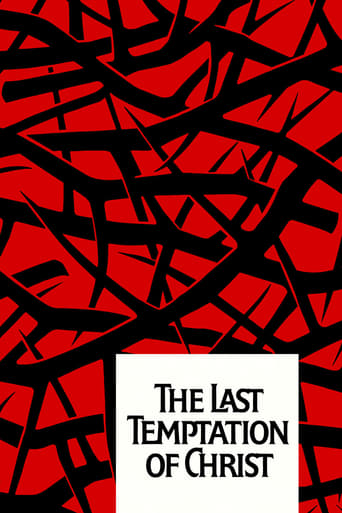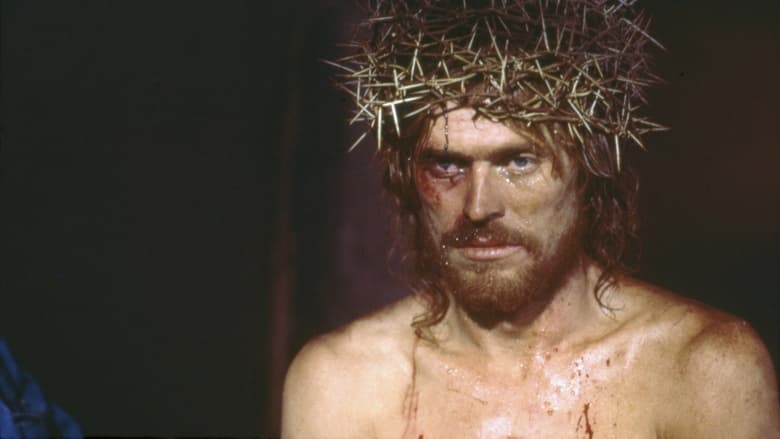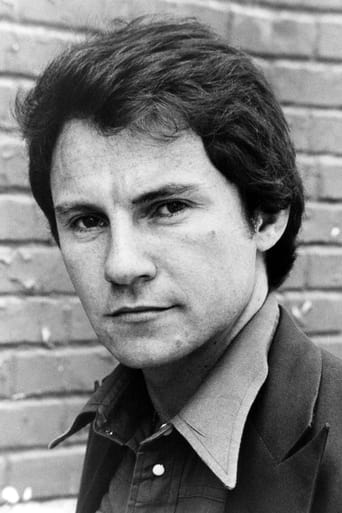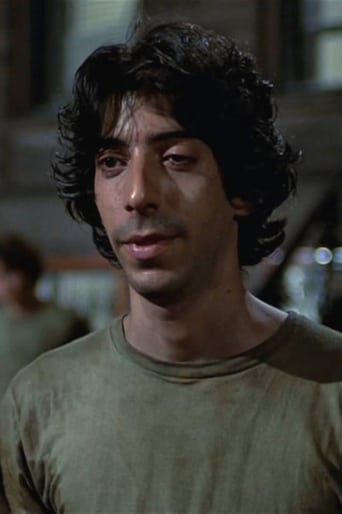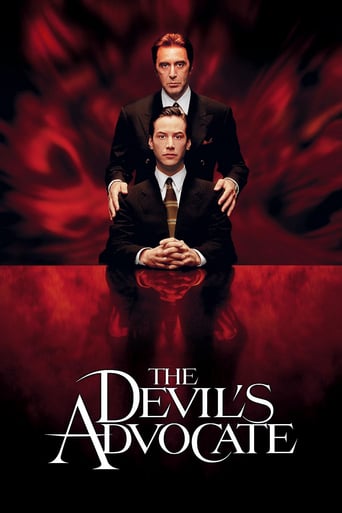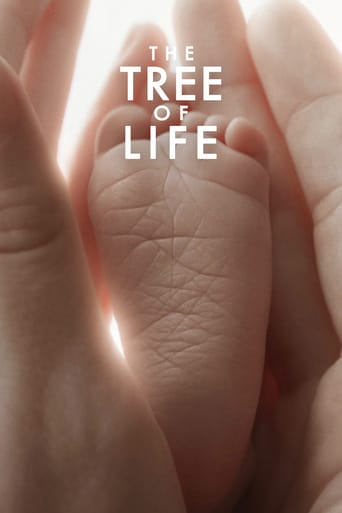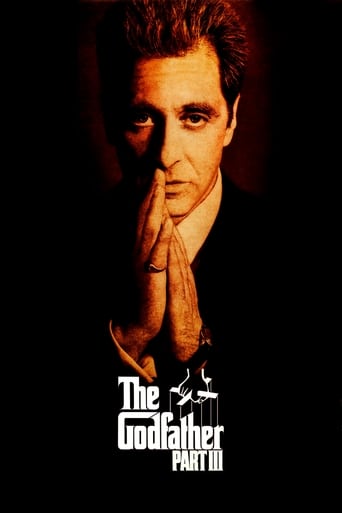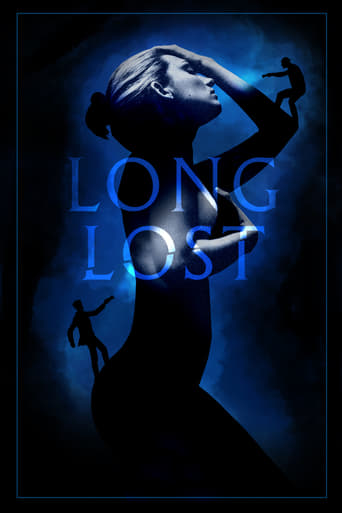The Last Temptation of Christ (1988)
Jesus, a humble Judean carpenter beginning to see that he is the son of God, is drawn into revolutionary action against the Roman occupiers by Judas -- despite his protestations that love, not violence, is the path to salvation. The burden of being the savior of mankind torments Jesus throughout his life, leading him to doubt.
Watch Trailer
Free Trial Channels
Cast


Similar titles
Reviews
Save your money for something good and enjoyable
brilliant actors, brilliant editing
If you're interested in the topic at hand, you should just watch it and judge yourself because the reviews have gone very biased by people that didn't even watch it and just hate (or love) the creator. I liked it, it was well written, narrated, and directed and it was about a topic that interests me.
Through painfully honest and emotional moments, the movie becomes irresistibly relatable
I recently saw A Personal Journey with Martin Scorsese Through American Movies (1995), arguably one of the most extensive and accessible documentaries about American film. Scorsese brings you into the beautiful world he first discovered very young, populated with rich characters, reverence towards film technology and awe towards auteurs he had come to respect. His contribution to the world of modern cinema is history making in its own right. A seasoned director and producer, Scorsese has also taken upon himself to champion film preservation on behalf of not just Hollywood movies, but movies worldwide; something for which I truly admire.Other aspects of the iconoclast I respect beyond measure are his non-gangster related films. Don't get me wrong I love Goodfellas (1990), Casino (1995), The Departed (2006) et al. but his other prestige projects; Taxi Driver (1976), Raging Bull (1980) and, of course The Last Temptation of Christ (1988) hold a special place in my heart I must express. I consider those three films in particular, the staples of Scorsese's quest for absolution for which The Last Temptation is the culmination of his artistic expression during his early period.Scorsese has always said that if he hadn't caught the film bug and started pursuing pictures as a vocation, he would have become a priest. Indeed it was probably the filmmaker's religious instruction in youth that helped make Last Temptation and further inform its versatility, beauty universality. The film is in fact based on an immensely controversial book of the same name written by Nikos Kazantzakis. Both the film and book dares to expose the life of Jesus Christ as both human and divine, filled with both holy obligation and temporal temptation. The film diminishes Jesus in the eyes of some, making him out to be frail, afraid and even pedestrian. I won't bore you with the actual plot of Last Temptation as it, for the most part comports with biblically recorded events. The difference is in the mind of its central character. Unlike Nicholas Ray's King of Kings (1961) or some of the earlier Hollywood hagiographies, Jesus is dispossessed of symbol status. He is not quite clear on his purpose and in the tradition of Abraham questions the decisions made by God. It is through his faults that the Devil finds a way into his tortured soul. In the 2/3rds mark, the devil, which up until then takes the temporal shape of a serpent, tempts Jesus with life free from godly responsibility. In a haze brought on by crucifixion, Jesus imagines living the life of a normal Judean plebeian, falling in love with Mary Magdalene, having children and dying of old age.Ultimately unfettered by the Devil's temptations, Jesus ultimately makes the choice to become the sacrificial Lamb of God, thus securing his divine status. Yet it was that very temptation among other liberties that made Christians go absolutely bonkers about The Last Temptation of Christ. Groups boycotted the film for its supposed blasphemies and religious extremists even firebombed the St. Michael Theatre in Paris during its theatrical release injuring ten. In the fervor of the film's release many of its detractors hurt their cause by purporting the Jews of Hollywood were out to destroy their religion.Destroy? I much doubt it. If anything Martin Scorsese's film is life and faith affirming. The film accepts and celebrates the Christian divinity of Jesus Christ while exposing an uncommon characterization that is much more believable. Not only believable but expresses the very thing that made Christ an important figure, his humanity! Furthermore the film creates a historical context which helps explain simultaneously how someone like Jesus could have existed and why his teachings were so prevalent and dangerous to the likes of Pontius Pilate and the Roman Empire.The Last Temptation of Christ is ultimately about a man who fights and ultimately accepts his narrative through faith in sacrifice. Nine years after hospitalization and treatment for cocaine addiction, Scorsese was no doubt galvanized by its message of a man fighting inner demons.While Last Temptation was made eight years after Raging Bull and twelve years after Taxi Driver, with four feature length films in- between I place Last Temptation among the triptych because they depict personal struggles on the part of the protagonists which mirror Martin Scorsese's own struggles with addiction. But while Raging Bull ends ruefully and Taxi Driver nihilistically, Last Temptation comes full circle, ending with a spiritual affirmation that even staunch zealots cannot deny.
'The Last Temptation of Christ' is an exceptionally interesting film in the context of Christianity and morality. It famously received widespread criticism for being blasphemous. From a certain standpoint, it is blasphemous because instead of focusing of Christ's divinity, it uses Jesus as a metaphor for man and a representative of the human condition. I can understand why some Christians might have objections with this portrayal. But as a non- Christian myself, I found myself utterly engaged and enraptured by this exploration of Jesus' humanity.The gospels give us the idea that although Christ was presented with a lot of worldly temptations and even though he did have a moment of doubt, he did in the end manage to wholeheartedly turn his back on them. But this film and the book it is based on paints a more complicated picture. Here it is proposed that Christ found it really difficult to turn his back on the normal, peaceful life. We see Jesus tied down and tortured by the idea of predeterminism. It is shown in the beginning that Jesus subconsciously is making crosses for Romans to make God hate him so that he leaves him alone. His yearning for a life as a husband and live with a wife like Magdalene or the sisters of Bethany continued to exist throughout his short life. The film proposes the idea that even after the crucifixion, Christ had this moment of fantasy wish-fulfilment of a different life, almost like a parallel universe where he turns his back on God and lives like a normal man.Another essential element of Christ's character in this film is his constant and relentless search for his role and purpose on Earth and what God wants from him. He constantly seeks out and looks for signs and metaphors to understand God's will. He is constantly asking questions and pleading God to give him a sign and tell him what to do. This again grounds the mystique of Christ and makes him human. He is just like all of us(in a little more heightened way). Even he is for the most part very unsure about his life, his purpose and his future on Earth.The representation of Judas in this film is fascinating. Conventional ideas and interpretations paint Judas as the guy who betrays Jesus. As a matter of fact, the name Judas itself has become synonymous with betrayal. However in this film, Judas' character is far more complicated and layered compared to the traitor that we generally visualise when thinking of him. At the beginning of the film, Judas comes across like the guy who is far more sure of himself and his ideas and views than Jesus and he also shows a lot of initiative in marching a revolt against the Romans. He also shows true belief in Jesus' ideas and views once Jesus decides to become a preacher. The 'betrayal' that Judas indulges in has everything to do the idea of predeterminism and nothing to do with his evilness. Judas gets successfully persuaded by Jesus himself to execute the betrayal as that betrayal itself was going to be the catalyst that will lead to Jesus' crucifixion and hence the saving of man's soul. So this film paints a morally upstanding picture of Judas who has to become evil because of his predetermined role in the bigger universal law set by God. This actually makes Judas comparable to the character of Mr. Glass in 'Unbreakable' in the way that the both eventually sacrifice their free will to uphold their predetermined fates even if that means becoming a symbol of evil. Judas is a hero in the film in the bigger picture and an essential cog in the wheel for the saving of man's soul.From a technical standpoint, I don't think this is a perfect film. I think there are a few moments and scenes that are executed a bit too clumsily due to Scorsese's overindulgence with the jump cut to a rapid tracking shot. He perfected this technique later on with 'Goodfellas', but here those moments seem a little unpolished. Having said that I think the crucifixion is brilliantly handled both visually and tonally. The acting is brilliant from everyone concerned. Barbara Hershey and Harvey Keitel bring gravitas to the roles of Mary Magdalene respectively. Willem Dafoe as Jesus brilliantly embodies the kind of Jesus that this particular interpretation wants him to be. Instead of the all-knowing, charming, overly kind godly Jesus that we get in many other interpretations, here Dafoe gives off a sense of uncertainty, a sense of fragility, a sense of humanity that works perfectly for the film.In a nutshell, I think the purpose of 'The Last Temptation of Christ', the film and the book blasphemous as it could be, is to ground the mystique of Christ and show him as a flawed human being with similar fears, concerns and vulnerabilities like us. But at the same time in showing him eventually overcoming these doubts and weaknesses, the film ends up being a unique portrayal of Jesus which is both accessible as well as inspirational even to a non-Christian, non-religious film- buff like me. Technically it is a bit clumsy at times because of some of the visual choices, but Scorsese and Schrader's treatment of the themes, the overall message and the brilliant performances make it easy for me to recommend 'The Last Temptation of Christ' wholeheartedly.
The Last Temptation of Christ is one of Scorsese's defining masterpieces, sitting in the ranks alongside Raging Bull, Goodfellas and Taxi Driver; it is an epic, highly evocative, narrative of the controversial and, at times, incredible life of Jesus Christ: his rise and fall. If looking at Scorsese's career in retrospective, it is unlikely that the film would be considered one of Scorsese's most enduring and recognizable features. However, whether through absolute innovation or audacious originality, it is an unrivaled spectacle.William Dafoe plays the title figure of Jesus, a troubled man lost in his inner conflicts, who is torn between his desire and the knowledge than God has a plan for him. As the film progresses Jesus leaves his life of labor, moving from place to place, preaching and gathering a group of followers- his original disciples. He performs miracles: healing a blind man, converting water to wine and raising Lazarus from the dead. I found Dafoe's portrayal of the son of God extraordinary. His speeches are riveting and incredibly moving; it is a performance full of tenderness, rage and love.There is a point, perhaps a third of the way through, when Jesus walks into the desert- out into the vast bareness- in the hope of speaking to God. He draws a circle around himself, in the dirt and sand, and sits there waiting. There is nothing: for a long, long time he just sits there waiting. At this point, the film subverts itself into a surreal nightmare. Jesus is visited by: a talking snake (with the voice of a woman), a lion, a fire- that seems to burn from an invisible source, and an apple tree. It is a metaphor for the Devil, what he represents, and is unlike anything I have ever seen before. We are watching the turmoil of Jesus's mind projected out around him, like some bizarre circus parade. It is only through experiencing 'evil' that we can truly understand and appreciate what the concept of 'good' means, a concept that Jesus comes to understand and evolve.The film's ending is an extraordinary rendering of pain and the inevitable descent of man. Jesus wades through the streets of Jerusalem, amongst jeering crowds, bearing a crown of thorns, a cross over his back. The camera glides through the action, enhanced by Scorsese's quintessential use of slow motion and music. It is horrific to watch yet utterly compelling. Nothing is hidden away, or censored, as we watch his hands nailed into the cross and the blood trailing down his forehead. The portrait of suffering and injustice is complete.The Last Temptation of Christ is an incredible film. The tragic story of Christ's life and his transformation of faith are beautifully visualized. The temptation in the title is of a normal life: where he can live, love and become a father. Yet he can never achieve that ideal- he is the Son of God. As Victor Hugo once said: 'Our lives dream the Utopia. Our deaths achieve the ideal.' Only through death can Jesus rise and become the testament to his own religion.Scorsese's picture is a masterpiece and a powerful odyssey into existence.
I felt I wanted to comment on this film to warn viewers that this really is the most boring pretentious rubbish I've seen for a long time. At nearly three hours long there is nothing here to recommend it other the main reason I watched it, and that was to see Barbara Hershey when she was at the top of her game. And she's not in it for long. Like most of us at school in England in the 1950's as I was, we were all taught these familiar stories about Jesus, healing the sick, turning the water into wine, raising the dead, dying on the cross and being resurrected etc etc. so I'm very aware of the background, unfortunately I couldn't really make much sense of the narrative here as it's tried to be way too clever for it's own good as cinema. I understand it follows the book which I haven't, and clearly will never read. However, if you are going to make a film about Christ, and it's still a good story, regardless of whether or not you believe all that stuff, which I do not, it doesn't necessarily mean you cannot enjoy a well made film as I did with Mel Gibson's terrific 'Passion of The Christ'. Unfortunately here, we have a skin white Jesus, played by Willem Dafoe as if he's about to fall asleep most of the time, wandering around muttering mumbo jumbo and being browbeaten by a much tougher Judas, played with gusto by Harvey Keitel as if he's just stepped out of one of his Scorsese gangster movies and can't quite make the adjustment. There are long, long scenes when absolutely nothing much happens and for the first half I kept thinking, well, David Bowie as Pontius Pilot is listed as one of the stars so that might be interesting. Well, he appears for about three minutes and wanders off and that's it. I think he must have gone for a cup of tea and decided not to come back. If I can nominate an actor for being top bore in an epic film, then Willem Dafoe wins my vote. Needless to say, Barbara Hershey was wonderful, but that's the only reason for staying on this trip.

